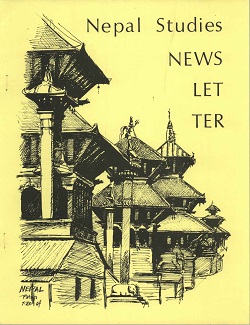Author Biography
Andrew Nelson is a cultural anthropologist at the University of North Texas. His research focuses on the relationship between home and migration in various social and geographic contexts ranging from migrants in Kathmandu to Nepali-Bhutanese refugees in Texas, and South Asian migrants in South America.
Abstract
Compared to the uniform brick architecture and contiguous courtyard structure of houses in the urban core of Kathmandu Valley cities, the houses of the growing urban periphery appear fragmented, disorganized, and unplanned. While critics attribute this haphazard growth to a site-then-services (house first, then infrastructure) approach of rural migrants, in this paper I consider it a result of an alternative formulation of planning generated by three-plus decades of economic and governmental liberalization. The practices of new homeowners in the periphery must be understood within the greater context of peri-urbanism controlled by a complex negotiation of brokers, contractors, housing companies, and neighborhood associations. I draw from the multiple expressions of what ‘ghar’ (house/ home) means to make sense of everyday life in a new neighborhood on the western edge of Kathmandu Valley. While ghar references the singular focus on building a prestigious house, it also indexes aspirations of neighborly cooperation and collective action to develop neighborhoods. Based on an ethnographic account of one family’s struggles to build a ghar, I track how such aspirations can unravel into debt, shame, and alienation, which ultimately produce a provisional sense of place in the city.
Acknowledgements
The author would like to thank all of the residents of Maitri Nagar for inviting him into their ghar and answering common-sense questions about what it means to them. He is also grateful to the U.S. Department of Education for sponsoring this research, as well as to Peter Moran and the Kathmandu Fulbright Office for the support extended to him while conducting research. The writing of this piece has benefitted from the helpful comments of the participants on the Kathmandu panel at the 2014 South Asian Studies Conference at Madison, as well as from insightful feedback from Heather Hindman, Melissa Nelson, Allyson Cornett, and two anonymous reviewers.
Creative Commons License

This work is licensed under a Creative Commons Attribution 4.0 License.
Recommended Citation
Nelson, Andrew. 2017. Prestigious Houses or Provisional Homes? The ghar as a Symbol of Kathmandu Valley Peri-Urbanism. HIMALAYA 37(1).
Available at:
https://digitalcommons.macalester.edu/himalaya/vol37/iss1/11


